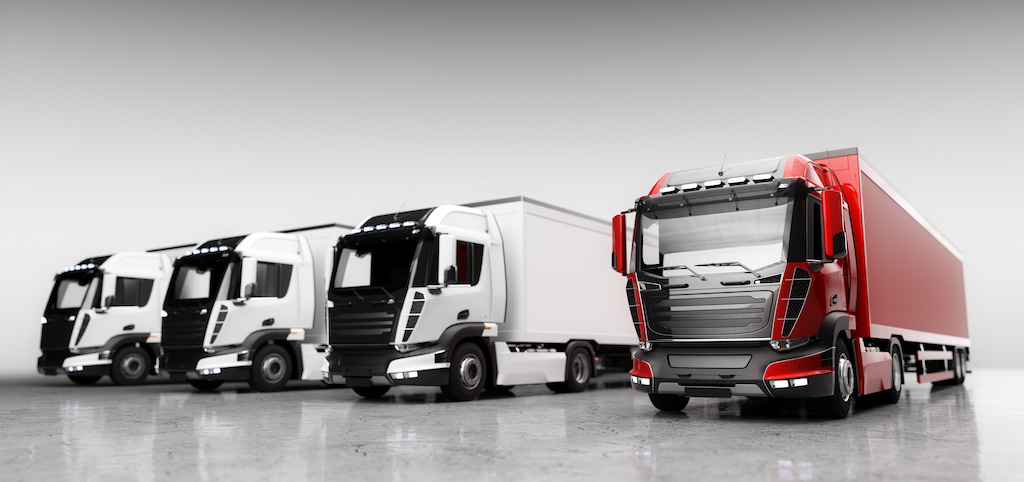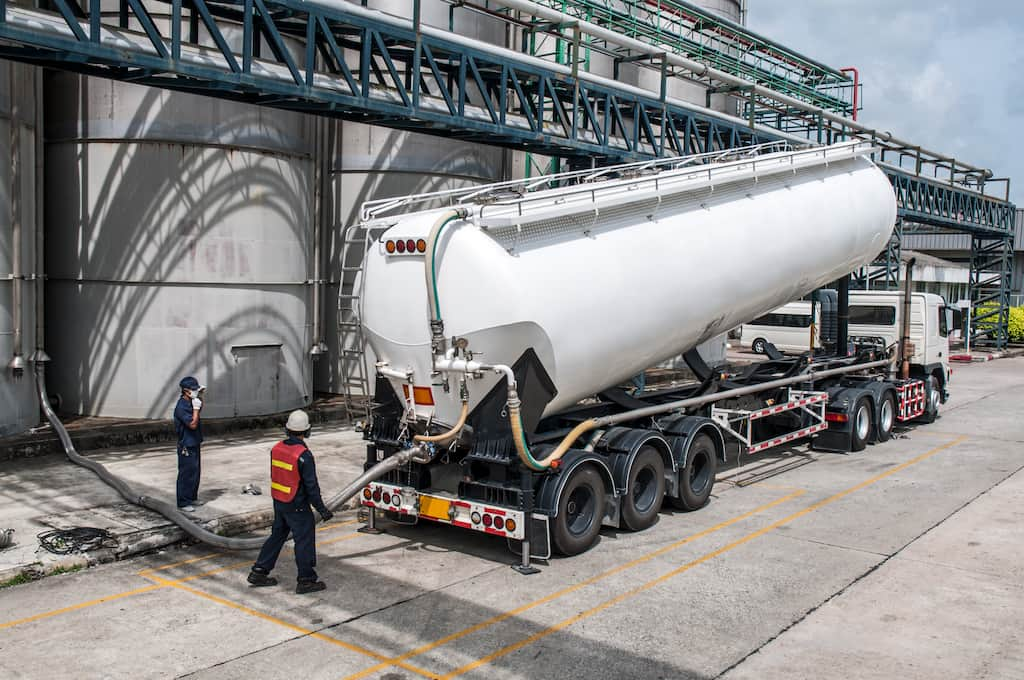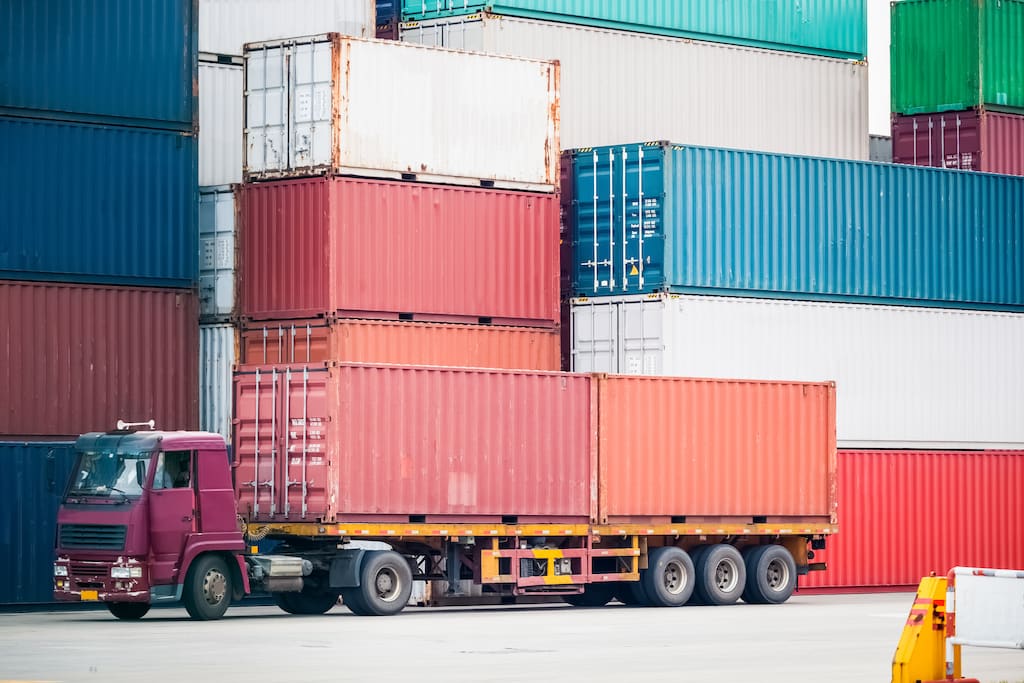
Choosing the right truck for transporting goods is crucial to ensuring efficiency and security in the supply chain. The correct choice of truck not only affects operating costs, but also the punctuality and integrity of the load. With a variety of truck types available, from general cargo trucks to refrigerated trucks and tanker trucks, it is essential to understand which one is best suited for each specific need.
In this article, we will explore in detail the different types of trucks used in freight transportation and how their selection impacts logistics operations. We will discuss the key factors to consider when choosing a truck, technological innovations in the sector, the rules and regulations that must be met, and offer practical advice to keep vehicles in optimal condition.
In the end, you will understand how to make the best choice to maximize the efficiency and safety of your transportation operations.
Tabla de contenidos
ToggleWhy is it important to select the right truck?
Choosing the right truck is crucial for efficiency in the transportation of goods, as it directly influences costs, delivery times and the security of the merchandise. A truck fit for the task can optimize operating costs by reducing fuel consumption and minimizing vehicle wear and tear. For example, a tanker truck is ideal for transporting liquids, avoiding losses and additional costs due to spills.
In terms of delivery times, choosing the right truck can significantly improve punctuality. A refrigerated truck is essential for transporting perishable products, ensuring that they arrive fresh and in good condition at their destination. This not only reduces product losses but also increases end customer satisfaction.
Furthermore, the security of the merchandise is a critical aspect. Designed to transport containers safely, container trucks ensure that cargo remains stable and protected during transit. This is vital to avoid damage, especially when transporting fragile or high-value products.
Transportation efficiency is also increased with the use of advanced technologies such as GPS tracking systems and telematics, which allow the routes and conditions of the vehicle to be monitored in real time. This facilitates route optimization and quick decision making, further improving efficiency and reducing costs.
Types of trucks for transporting goods
Choosing the right truck for transporting goods is essential to maximize the efficiency, safety and profitability of logistics operations.
Below, we explore the different types of trucks, their characteristics, common uses and advantages:
General cargo trucks

Description and Features: General cargo trucks are versatile vehicles designed to transport a wide variety of goods. These trucks typically have an open or closed bed, allowing them to accommodate different types of cargo, from manufactured goods to construction materials. Load capacity varies depending on the size of the truck, but generally, they can carry between 5 and 20 tons.
Common uses and advantages: General cargo trucks are ideal for transporting non-perishable goods that are not sensitive to environmental conditions. They are commonly used in manufacturing, construction and retail distribution. One of the main advantages of these trucks is their versatility; They can adapt to different types of load with minimal modifications. Additionally, they are relatively easy to maintain and operate, making them an economical option for many businesses.
refrigerated trucks

Description and characteristics: Refrigerated trucks are equipped with refrigeration systems that keep cargo at controlled temperatures. These trucks are essential for transporting temperature-sensitive products, ensuring that goods remain fresh and in good condition throughout the journey. Cooling systems can range from simple cooling units to advanced systems that allow precise temperature control.
Common Uses: Refrigerated trucks are crucial in transporting food, pharmaceuticals, and other perishable goods. They are widely used for transporting fruits, vegetables, meat, fish and dairy products. Additionally, they are essential for the distribution of vaccines, medications and other pharmaceutical products that require strict temperature conditions.
Tank trucks

Description and characteristics: Tank trucks are designed for the transportation of liquids and gases in bulk. These trucks have a tank mounted on the vehicle’s chassis, made of corrosion-resistant materials, such as stainless steel or aluminum. The capacity of tankers varies, but they can generally carry between 5,000 and 11,000 liters.
Common Uses: Tanker trucks are commonly used in the transportation of liquids such as water, milk, chemicals, and fuel. They are essential for the oil and chemical industries, where the safe and efficient transportation of hazardous liquids is required. These trucks are equipped with advanced safety systems to prevent leaks and spills, which is crucial to minimize environmental risks and ensure cargo safety.
Container Trucks

Description and features: Container trucks are specifically designed to transport cargo containers. These trucks have a reinforced chassis that allows the safe mounting of standard containers. Container trucks are essential for intermodal transport, as they facilitate the transfer of containers from ships to trains and trucks, without the need to unload and reload the merchandise.
Common uses: Container trucks are mainly used to transport containers in ports and cargo terminals. They are essential for intermodal cargo, allowing an efficient transition between different modes of transport, such as sea, rail and road. This ability to handle standard containers significantly reduces cargo handling time and costs.
Factors to consider when choosing a truck
When choosing a truck for transporting goods, it is crucial to consider a variety of factors that can affect the efficiency, safety and profitability of logistics operations.
Below we examine some of the key factors to consider when selecting the right truck:
Type of merchandise
The choice of truck must be made taking into account the type of merchandise to be transported. It is essential to select a truck that can adequately accommodate and protect cargo. For example, for perishable products, a refrigerated truck will be needed, while for bulk liquids, a tanker truck will be more appropriate. Consideration of the type of merchandise guarantees the safety and integrity of the cargo during transportation.
Distance and routes
Travel distance and available routes are also important factors to consider when choosing a truck. Depending on the distance to be traveled and road conditions, it may be necessary to select a truck with specific features, such as an off-road truck for difficult routes or a long-haul truck for extended road trips. Additionally, it is crucial to consider the availability of alternative routes and travel time efficiency to ensure timely and cost-effective deliveries. Operating costs
The operating costs of different types of trucks should be carefully analyzed before making a decision. This includes not only the initial cost of acquiring the truck, but also ongoing maintenance, fuel and insurance expenses. Understanding the operating costs associated with each type of truck allows for informed decision making and helps ensure that the option selected is economical and profitable in the long term.
Innovations and technologies in transport trucks

Technological advancement has revolutionized the transportation industry, providing new innovations and solutions that improve the efficiency, safety and sustainability of transportation trucks.
Below, we explore some of the most notable technologies in the field of transport trucks: Electric trucks
Electric trucks are gaining popularity due to their lower environmental impact and lower long-term operating costs. With zero exhaust emissions, electric trucks contribute to reducing pollution and moving towards sustainable transportation. However, they still face challenges such as limited range and insufficient charging infrastructure.
GPS tracking systems
GPS tracking systems allow you to monitor the location and performance of trucks in real time. This provides greater visibility and control over operations, making it easier to plan efficient routes and optimize cargo distribution. Additionally, real-time tracking improves safety by enabling rapid response to emergency situations or unplanned deviations.
Telematics and fleet management
Telematics plays a crucial role in efficient fleet management by providing accurate data on truck performance and operation. By using telematics devices, companies can monitor fuel consumption, preventative maintenance, and driver safety, thereby optimizing efficiency and reducing operating costs.
Rules and regulations for the transportation of goods
The transportation of goods is subject to a series of rules and regulations that guarantee safety, environmental protection and efficiency in operations.
Below, we analyze some of the most relevant regulations that affect the freight transport sector:
Safety regulations
Safety regulations establish standards and procedures to ensure road safety and the protection of drivers and cargo. These regulations address issues such as proper vehicle maintenance, driving and rest time, and safe cargo handling. Complying with these regulations is essential to prevent accidents and guarantee the integrity of transportation operations.
Emissions legislation
Emissions legislation sets limits and requirements for the amount of pollutants that vehicles can emit. This includes regulations on exhaust gases, noise and other environmental emissions. Trucks must meet specific emissions standards to reduce their impact on the environment and public health. Emissions legislation influences the choice of propulsion technologies and cleaner alternative fuels.
Maintenance requirements
Maintenance requirements specify standards and procedures for proper maintenance of trucks. This includes regular inspections, necessary repairs, and maintenance records. Complying with maintenance requirements is essential to ensure the safety, reliability and efficiency of vehicles in the transportation of goods.
Tips to keep trucks in optimal condition

Proper maintenance of trucks is essential to ensure optimal operation, prolong their useful life and ensure safe transportation of goods.
Here are some key tips to keep trucks in top condition:
Preventive Maintenance
Preventive maintenance involves performing regular scheduled checks and services to identify and correct potential problems before they become major failures. This approach helps avoid unplanned downtime, costly repairs, and potential accidents on the road. By keeping trucks in optimal condition, the reliability and efficiency of transportation operations is ensured.
Regular inspections
Performing regular inspections is critical to identifying and addressing any truck safety or performance issues. These inspections should cover aspects such as the condition of the tires, brakes, lights, suspension systems and vehicle fluids. By performing regular inspections, any potential problems can be detected and corrected before they affect transportation and driver safety and ensure compliance with safety regulations.
Conclusion
In short, proper truck selection and maintenance are critical to successful freight transportation. By choosing the right types of trucks and keeping them in optimal condition through preventive maintenance practices and regular inspections, the efficiency, safety and reliability of logistics operations is ensured.
It is vital to prioritize the proper selection and constant care of trucks to minimize downtime, reduce operating costs and ensure customer satisfaction in the transportation of goods.
Do you need help selecting the best trucks for your business?
Contact us at TPLogistics for expert advice and customized solutions for your freight transportation needs! Visit our website to learn more about our services and how we can help you.

